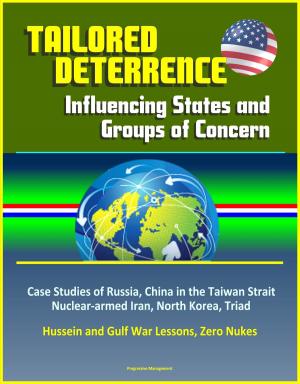Augmenting Our Influence: Alliance Revitalization and Partner Development - U.S. Strategic Interests in Asia-Pacific, Senkaku, Obama Strategy, Europe, NATO, Future of American Landpower
Nonfiction, History, Military, Strategy| Author: | Progressive Management | ISBN: | 9781310858031 |
| Publisher: | Progressive Management | Publication: | May 3, 2014 |
| Imprint: | Smashwords Edition | Language: | English |
| Author: | Progressive Management |
| ISBN: | 9781310858031 |
| Publisher: | Progressive Management |
| Publication: | May 3, 2014 |
| Imprint: | Smashwords Edition |
| Language: | English |
The United States prefers to fight in coalitions, and has made this clear in both word and deed. Most of the key American national security or defense strategies, such as the Quadrennial Defense Review report or the National Security Strategy, of the last decade or more note this fact. In practice, the United States worked diligently and tirelessly to construct and maintain coalitions of the willing in both Iraq and Afghanistan. American political and military leaders did this — and will continue to do this for future conflicts — because coalition allies provide both political legitimacy at home and abroad for broad national security policies and specific military operations, and because coalition partners help to shoulder security burdens.
For these reasons, it seemed appropriate and necessary to address the role that allies play today and might continue to play in American national security formulation and implementation during an era of change for the U.S. military, and for the U.S. Army in particular. That was the task given to a panel of experts convened by the U.S. Army War College at the 24th Annual Strategy Conference in April 2013 in Carlisle, PA. Organized and chaired by Dr. John R. Deni of the Strategic Studies Institute, the panel—consisting of Dr. William Tow of the Australian National University, Dr. Carol Atkinson of the University of Southern California, and Dr. Sean Kay of Ohio Wesleyan University—addressed the importance of allied and partner contributions to current and future national security challenges and the most effective and efficient ways for the United States to leverage those contributions in the pursuit of common interests.
The chapters in this edited volume are based upon the presentations of those experts at the Strategy Conference, and the Strategic Studies Institute is pleased to offer them as part of the ongoing discussion over the future of the U.S. Army in American national security.
The United States prefers to fight in coalitions, and has made this clear in both word and deed. Most of the key American national security or defense strategies, such as the Quadrennial Defense Review report or the National Security Strategy, of the last decade or more note this fact. In practice, the United States worked diligently and tirelessly to construct and maintain coalitions of the willing in both Iraq and Afghanistan. American political and military leaders did this — and will continue to do this for future conflicts — because coalition allies provide both political legitimacy at home and abroad for broad national security policies and specific military operations, and because coalition partners help to shoulder security burdens.
For these reasons, it seemed appropriate and necessary to address the role that allies play today and might continue to play in American national security formulation and implementation during an era of change for the U.S. military, and for the U.S. Army in particular. That was the task given to a panel of experts convened by the U.S. Army War College at the 24th Annual Strategy Conference in April 2013 in Carlisle, PA. Organized and chaired by Dr. John R. Deni of the Strategic Studies Institute, the panel—consisting of Dr. William Tow of the Australian National University, Dr. Carol Atkinson of the University of Southern California, and Dr. Sean Kay of Ohio Wesleyan University—addressed the importance of allied and partner contributions to current and future national security challenges and the most effective and efficient ways for the United States to leverage those contributions in the pursuit of common interests.
The chapters in this edited volume are based upon the presentations of those experts at the Strategy Conference, and the Strategic Studies Institute is pleased to offer them as part of the ongoing discussion over the future of the U.S. Army in American national security.















